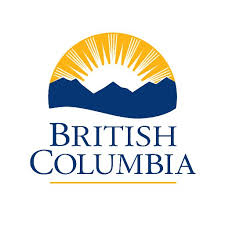marine ecounit
Type of resources
Available actions
Topics
Keywords
Contact for the resource
Provided by
Formats
Representation types
Update frequencies
status
-

Pelagic Marine Ecounits are intended to describe the sea surface and water column. Two variables were selected to derive pelagic ecounits:1. Salinity and 2. Stratification. The British Columbia Marine Ecological Classification (BCMEC) is a hierarchical classification that delineates Provincial marine areas into Ecozones, Ecoprovinces, Ecoregions and Ecosections. The classification was developed from previous Federal and Provincial marine ecological classifications which were based on 1:2,000,000 scale information. The BCMEC has been developed for marine and coastal planning, resource management and a Provincial marine protected areas strategy. A new, smaller level of classification termed ecounits developed using 1:250,000 scale depth, current, exposure, subsurface relief and substrate was created to verify the larger ecosections, and to delineate their boundaries. CRIMS is a legacy dataset of BC coastal resource data that was acquired in a systematic and synoptic manner from 1979 and was intermittently updated throughout the years. Resource information was collected in nine study areas using a peer-reviewed provincial Resource Information Standards Committee consisting of DFO Fishery Officers, First Nations, and other subject matter experts. There are currently no plans to update this legacy data.
-

Benthic Marine Ecounits in coastal and offshore British Columbia. Benthic ecounits are intended to describe the sea bed and nearshore. Seven variables were selected to derive benthic ecounits: 1. Depth; 2. Slope; 3. Relief; 4. Temperature; 5. Exposure; 6. Current and 7. Substrate. CRIMS is a legacy dataset of BC coastal resource data that was acquired in a systematic and synoptic manner from 1979 and was intermittently updated throughout the years. Resource information was collected in nine study areas using a peer-reviewed provincial Resource Information Standards Committee consisting of DFO Fishery Officers, First Nations, and other subject matter experts. There are currently no plans to update this legacy data.
 Arctic SDI catalogue
Arctic SDI catalogue